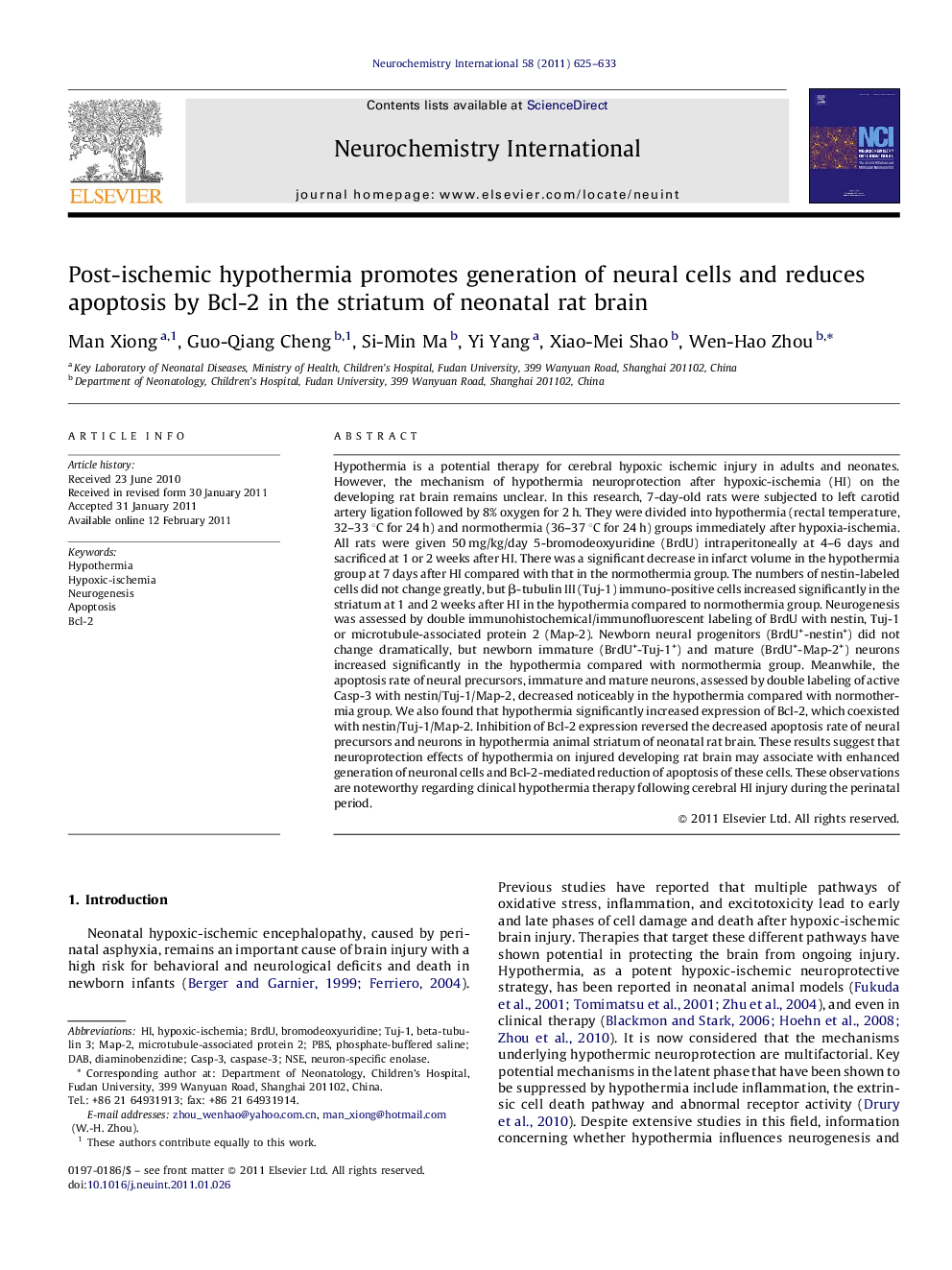| کد مقاله | کد نشریه | سال انتشار | مقاله انگلیسی | نسخه تمام متن |
|---|---|---|---|---|
| 2201138 | 1100000 | 2011 | 9 صفحه PDF | دانلود رایگان |

Hypothermia is a potential therapy for cerebral hypoxic ischemic injury in adults and neonates. However, the mechanism of hypothermia neuroprotection after hypoxic-ischemia (HI) on the developing rat brain remains unclear. In this research, 7-day-old rats were subjected to left carotid artery ligation followed by 8% oxygen for 2 h. They were divided into hypothermia (rectal temperature, 32–33 °C for 24 h) and normothermia (36–37 °C for 24 h) groups immediately after hypoxia-ischemia. All rats were given 50 mg/kg/day 5-bromodeoxyuridine (BrdU) intraperitoneally at 4–6 days and sacrificed at 1 or 2 weeks after HI. There was a significant decrease in infarct volume in the hypothermia group at 7 days after HI compared with that in the normothermia group. The numbers of nestin-labeled cells did not change greatly, but β-tubulin III (Tuj-1) immuno-positive cells increased significantly in the striatum at 1 and 2 weeks after HI in the hypothermia compared to normothermia group. Neurogenesis was assessed by double immunohistochemical/immunofluorescent labeling of BrdU with nestin, Tuj-1 or microtubule-associated protein 2 (Map-2). Newborn neural progenitors (BrdU+-nestin+) did not change dramatically, but newborn immature (BrdU+-Tuj-1+) and mature (BrdU+-Map-2+) neurons increased significantly in the hypothermia compared with normothermia group. Meanwhile, the apoptosis rate of neural precursors, immature and mature neurons, assessed by double labeling of active Casp-3 with nestin/Tuj-1/Map-2, decreased noticeably in the hypothermia compared with normothermia group. We also found that hypothermia significantly increased expression of Bcl-2, which coexisted with nestin/Tuj-1/Map-2. Inhibition of Bcl-2 expression reversed the decreased apoptosis rate of neural precursors and neurons in hypothermia animal striatum of neonatal rat brain. These results suggest that neuroprotection effects of hypothermia on injured developing rat brain may associate with enhanced generation of neuronal cells and Bcl-2-mediated reduction of apoptosis of these cells. These observations are noteworthy regarding clinical hypothermia therapy following cerebral HI injury during the perinatal period.
Research highlights
► Mild hypothermia increased neurogenesis.
► Mild hypothermia reduced the apoptosis rate of neural progenitor cells and immature and mature neurons.
► Bcl-2 increased significantly in the hypothermia group and co-expressed in neural progenitor cells and immature and mature neurons.
► Knockdown of the expression of Bcl-2 significantly impaired the increased survival of neural cells in hypothermia group.
Journal: Neurochemistry International - Volume 58, Issue 6, May 2011, Pages 625–633